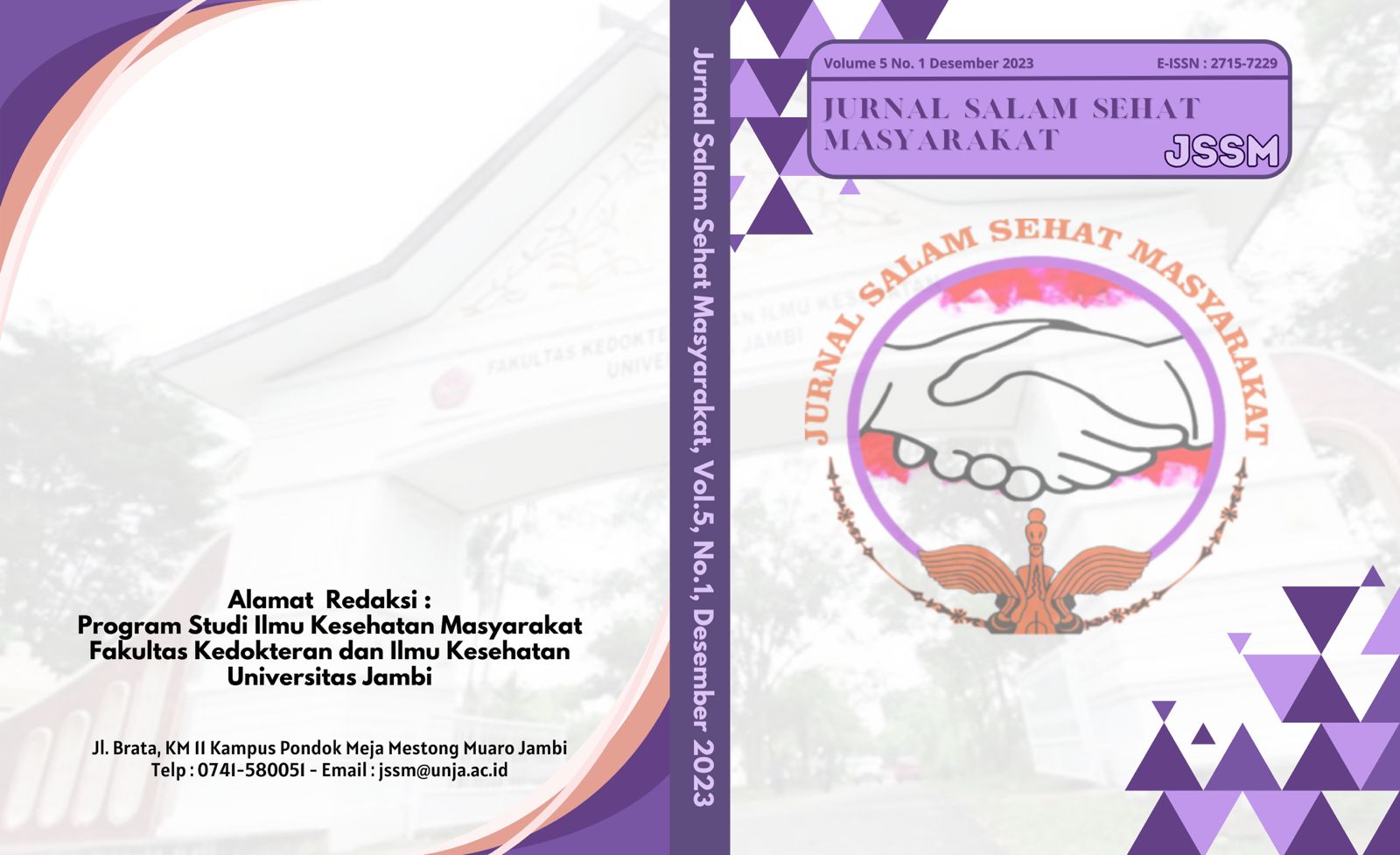PEMBERDAYAAN SANTRI SEBAGAI PEER EDUCATOR DALAM PERILAKU HIDUP BERSIH DAN SEHAT DI PONDOK PESANTREN IRSYADUL IBAD
DOI:
https://doi.org/10.22437/jssm.v5i1.29763Keywords:
Pelatihan, Peer education, PHBS, TrainingAbstract
Adolescence is a transition period from childhood to adulthood, this triggers the emergence of complex health problems in adolescents as a result of the risky behavior they engage in. Technological progress in the world is very rapid, including in Indonesia, with rapid technological developments, adolescent problems in Indonesia are also developing. There are positive things and also negative things in various big cities in Indonesia, around 20 to 30 percent of teenagers admit to having had sex. Youth Posyandu is a form of Community Resource Health Effort (UKBM) which is managed and organized by, by, for and with the community including teenagers in implementing health development to improve the health status and healthy living skills of teenagers. The aim of establishing adolescent health cadres is to provide a platform to facilitate adolescent health needs. The aim of this community service is to increase the role of teenagers in planning, implementation and evaluation, as well as creating a forum for coaching and understanding the importance of a healthy lifestyle. The method used is education about clean and healthy living behavior and training. This service was carried out at the Irsyadul Ibad Islamic boarding school with a target number of 35 students. Activities are carried out with a pre-test stage, an education and discussion implementation stage and an evaluation stage with a post-test. PkM activities with pre-test scores obtained with a comparison mean score between pre-test and post-test was 1.50. There were also 27 (76%) respondents whose knowledge increased, 6 (17%) respondents whose knowledge remained unchanged and 3 (7% ) respondents whose knowledge decreased. The results of the bivariate analysis test with the Wilcoxon T-Test on Pre-test and Post-Test respondents. The results of data testing show a p value = 0.000 <0.05, so it can be concluded statistically that there is a significant difference in knowledge between knowledge before and after training
Downloads
References
Kemenkes RI. Rencana Strategis Kementerian Kesehatan Tahun 2015-2019. Jakarta: Kemenkes RI; 2015.
Kemenkes RI. Profil Kesehatan Indonesia Tahun 2015. Dr. drh. Didik Budijanto MK, Yudianto, SKM MS, Boga Hardhana, S.Si M, drg. Titi Aryati Soenardi MK, editors. Jakarta: Sekretariat Jenderal; 2016.
Kemenkes RI. Pedoman pembinaan perilaku hidup bersih dan sehat (PHBS). Jakarta; 2011. 1–97 p.
Amin H. Masa Depan Pesantren Dalam Tantangan Modernitas dan Tantangan Komplesitas Global. Jakarta: IRD Press; 2004.
Poltekkes Depkes Jakarta I. Kesehatan Remaja: Problem dan Solusinya. Jakarta: Salemba Medika; 2010.
Efendi F, Makhfudli. KEPERAWATAN KESEHATAN KOMUNITAS: Teori dan Praktik dalam Keperawatan. Nursalam, Nurs. M, editors. Jakarta: Salemba Medika; 2009. p. 1–220.



 e-ISSN :
e-ISSN : 



